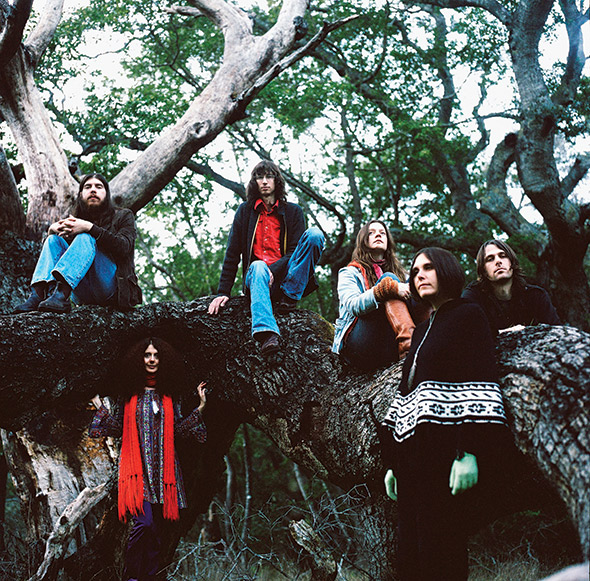Text by Kendra Macleod
Photograph by Alissa Anderson

Being accustomed to the grimy dinge of indie-band venues, I walked into the Town Hall Theatre in New York, and being ushered through the theater to cushy seats was a somehow comforting experience. The larger audience for the headliner of this show, Stereolab, had not quite made it in. But the couples and threesomes that dotted the dark venue were entranced by the opening act Espers, which was led by guitar-wielding, sometimes-vocalist, and flute player Greg Weeks. With a troupe of band members and guests onstage, they dove into a multi-instrumental symphony of sorts. I closed my eyes and heard Weeks mention something about the next song being scary, but I let my mind wander off into the sounds – orchestral and layered in the most organic way. I let myself drift off, outside the urbanity of New York, and into a world tapestried by music. As Weeks announced their last song, he introduced Stereolab, and midway through, the three men of the seminal post-rock band came out and joined their younger brethren. Mixing electro-synth pop with the more vintage kaleidoscope-sound of Espers may sound strange, but it was somehow epically moving. Seeing the merge between the older men established with a “modern” sound and the young band, whose music is so reminiscent of the past, was striking in conception and sound.
Espers started somewhere between the Northeast cities of New York and Philadelphia as a trio featuring singer-songwriter Weeks, Meg Baird and Brooke Sietinsons playing acoustic guitars and contributing vocals. The multi-piece act now includes six musicians, including Helena Espvall on cello, bassist Chris Smith and drummer Otto Hauser. And today, on St. Patrick’s green holiday, the band had expanded even more to include extra friends on drums and guitar.
While Espers’ music has been linked to the new-age folk era that has burgeoned across the indie scene over the last few years, the more outspoken members of Espers smart at the idea of being categorized within a “folk movement.” Yet they are guilty by association. The recent movement of bands has been to incorporate classical instruments – like cello and violin, and traveling pieces like flutes and harmonicas. These bands tend to share and value likeminded tastes and political standpoints, which may explain why Meg Baird tells me backstage that this particular band is at it’s best during the creation phase of music. And though Espers can be perceived and categorized by their pathways and methods similar to dozens of other bands, their music still enthralls.

